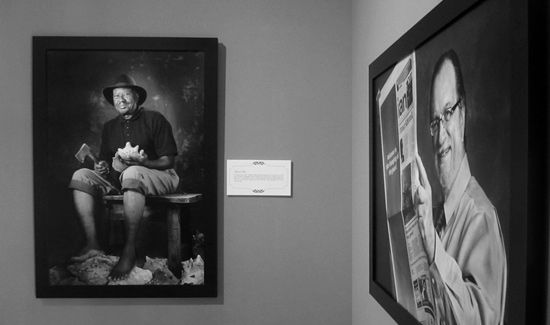 Firstly, let me sincerely express kudos to the Christie administration for introducing a compendium of Bills meant to eliminate all forms of gender inequality and discrimination that has for far too long been representative of some of the most discomposing blemishes in our Constitution.
Firstly, let me sincerely express kudos to the Christie administration for introducing a compendium of Bills meant to eliminate all forms of gender inequality and discrimination that has for far too long been representative of some of the most discomposing blemishes in our Constitution.
I think that passage of these Bills through both Houses of Parliament should be simple and garner the support of all members. However, the fact that the government has proposed a referendum in the wake of last year’s gaming referendum – that was thereafter not adhered to and held to be a non-binding opinion poll by government representatives -leaves many Bahamians to question the sincerity of the newly-proposed referendum set for November 6.
Frankly, whilst I believe that all right thinking Bahamians should vote ‘yes’ in support of a Constitutional Referendum that seeks to level the playing field for men and women, the people’s experiences with key figures in the governing party during the last Constitutional Referendum in 2002 and with the conduct of last year’s opinion poll has led to calls in some quarters for some to boycott this year’s referendum, with some persons openly stating that they refuse to “ink up” their fingers for a “another phony referendum.”
That said, I do not share that view and would discourage any Bahamian would thinking along those lines.
According to Prime Minister Perry Christie, the first Bill being introduced would allow for any child born outside the Bahamas to a Bahamian mother and a non-Bahamian father to have citizenship; the second would allow a foreign man married to a Bahamian woman to seek Bahamian citizenship; the third Bill would allow an unmarried Bahamian father to pass his citizenship to a child born to a foreign mother, whilst the fourth would end discrimination in the constitution based on gender.
Disappointingly, the referendum held by the Ingraham Administration in 2002 was overwhelmingly rejected, in large part due to petty politicisation of the entire process by the Church and members of the current governing party. At that time, 64 per cent of Bahamians voted “no” to removing discrimination against women, their children and spouses from the Constitution.
What’s more, in the 2002 referendum, the electorate voted against questions that spoke to the creation of a national commission to monitor the standards of teachers, the creation of an independent parliamentary commissioner, the creation of an independent electoral boundaries commission and that sought to increase the retirement ages of judges from 60 to 65 (or 68 to 72 for appellate judges).
Whilst I was not of voting age at the time, I think that the electorate made a grievous mistake in 2002 – caught up in the emotionalism of political partisanship – and I, as one member of today’s electorate, intend to support any sensible, principled change to the Constitution that could advance our nation, foster greater egalitarianism and modernise our legal framework.
Quite honestly, I think that the government should move to address more of the recommended changes made by the Constitutional Commission in a series of staggered referenda, inclusive of those previously advanced in the 2002 referendum.
Having read the Commission’s report, I was disappointed that there weren’t any recommendations to institute term limits on a Prime Minister and implement an electoral recall system, which would allow the voting public an opportunity to rid their communities of lousy representatives with, say, a petition reflecting the signatures of at least 75 per cent of constituents.
This is what democracy is truly about, this is what putting power in the hands of the people is truly about as opposed to the current set-up where Bahamians have a voice – with their votes – only once every five years.
Indeed, the passage of Constitutional reforms has been delayed by 12 years and whilst that is recognised, the proposed November 6 referendum seems a bit rushed and – unless a massive public relations and educational campaign is conducted – Bahamians are unlikely to rush to the polls or could commit the grave mistake of voting ‘no’ yet again.
I am pleased to see that my former law lecturer, retired Supreme Court Justice Ruby Nottage, will head the education campaign. I do think that the campaign should be launched immediately, in order to maximise the time available for discussion and dialogue throughout the country in advance of the national poll.
One also notes that the government must streamline some of the major issues it is addressing, since to attempt to tackle all at once could overwhelm the wider public (think gaming, national health insurance, Value Added Tax, constitutional reform, etc). Moreover, the outcome of last year’s referendum could be spoken to a bit more in depth by the Prime Minister and respectable representatives to whom the people would listen, with a view to explaining in greater detail the about-face concerning the webshops and to seek to reduce much of the suspicion of the public relative to the November 6 referendum and whether their views will be respected and adhered to.
I think that constitutional reform is long overdue and I, for one, welcome such a gesture.
VAT on BEC bills, bread basket items, etc
This week, the government also tabled the much anticipated Value Added Tax Bill in the House of Assembly. In doing so, a list of proposed changes to tariff and excise duty rates was disclosed, revealing a “pared down” list of VAT exempt services that does not include electricity, bread basket items and private healthcare.
Beginning January 1, 2015, proposed decreases in duty rates for numerous items will come into effect. Items like watches, suitcases and articles of jewellery will be duty free while various others – ranging from food to clothing – would see duty reductions ranging from five to 25 per cent.
According to Minister of State Michael Halkitis, this does not mean electricity costs will increase by the VAT rate of 7.5 per cent, nor will the tax wreak havoc on the poor since the government will establish mechanisms to mitigate this. However, I think that there are many Bahamians who would disagree with the minister and, if one listens to the talk shows, will continue to object vehemently to the application of VAT to already skyrocketing electricity bills.
Frankly, when one considers VAT, coupled with national health insurance and subsequent increases in national insurance, it is frightening to see that the government seems to be so disconnected from the realities of the ordinary citizenry to believe that Bahamians could possibly afford further increases to their electricity costs and, even more stunning, increases on bread basket items that are already exorbitantly priced.
At this rate, the poor can only become poorer and the levels of poverty can only increase. Even more, the Department of Social Services budget, which saw a mere increase of some $350,000 in the July 1 budget, will hardly be able to provide relief for those in lower income levels.
I think that the government’s further imposition of a 7.5 per cent VAT on insurance premiums will lead to many more Bahamians not being able to afford auto, health and property insurance. Frankly, the police and road traffic department’s statistics would show that a large number of Bahamians are already traversing our streets without vehicular insurance, due in part to them not being able to purchase insurance packages as it currently is set-up, because corrupt road traffic officers licence these vehicles without insurance and/or because the law is selectively being enforced or hardly being enforced at all.
Generally, it is felt that Bahamians are, by and large, already without insurance or under-insured. Insurance is seen by some as something reserved for the more privileged among us, as many Bahamians simply cannot afford the premiums … yet the government seeks to crazily cause there to be increases in insurance premium prices. By the way, since my varied insurance carriers have already been raising my insurance rates, one would like to know more about the standard that they are using to justify these increases? What is the Insurance Commission doing as it stands?
The government specifically identified life insurance and annuities as products that will be treated as VAT ‘exempt’, meaning that health insurance, as well as the property and casualty variety, will be taxable at 7.5 per cent. According to the government, although VAT will be introduced in January, insurance companies will be allowed a grace period as health, property and auto insurance policies will be hit with the 7.5 per cent VAT levy on June 30, 2015.
One wonders how many employers will now drop their insurance coverage for their employees, which for many of them might have been the only form of insurance they had?
The vast majority of Bahamians are unable to purchase homes, so many more Bahamians will now be unable to afford, and access, mortgages and various types of investment products that require some form of insurance cover?
Transitioning a bit, one knows that the private healthcare sector is a relief valve for many who want prompt, quality care for either themselves or their families. The government has made that more difficult by taxing health insurance and private healthcare in what seems to be a deliberate attempt at pushing people towards a public healthcare system that we all know lack the capacity and the infrastructure to deliver great service in a timely manner.
What’s more, whilst all this is being done, I find it idiotic that the numbers and gaming houses are all exempt from VAT. This speaks to the priorities and is perhaps representative of a conflict of interest, a measured scheme to force more Bahamians in the government’s version of health insurance. If higher premiums are applied to private healthcare – and many of us pay high enough insurance premiums as is – a number of people who would have otherwise been able to afford a private physician will shift to public healthcare … and wow oh wow, the government appears to be stalled and unable to even outfit, staff and open the critical care block in a timely fashion as is.
The VAT public education campaign must be started immediately, with credible professionals at the helm.
The Renward Wells fiasco
As a person, I’ve come to like Renward Wells over the years. I know his dad (a Long Island man) and he’s “good people!” However, the government has found itself in an embarrassing quandary since Mr Wells signed a letter of intent with Stellar Waste – relative to waste to energy – without having the actual authority to do so. This week, it was reported that the Prime Minister had requested Wells’ resignation, but that was followed by Deputy Prime Minister Brave Davis’ commentary that they entire undertaking had to be further reviewed. And so, Mr Christie has now said that his government will provide answers on the controversy surrounding a letter of intent for a $650 million facility in due course.
So, what is due course?
If Mr Wells did not sign the letter of intent on his own, under whose instructions did he sign it?
What is the reason for the Prime Minister’s about face in the wake of the DPM’s comments? Why has the government or Mr Wells not provided an explanation as to what happened?
Has the Cabinet now disregarded all semblance of collective responsibility and are there persons within the government now making things up on the fly?
Does Renward Wells have any important information which, if he’s disgraced, could be exposed? Is Wells being asked to fall on his sword, to take one for the team only to later be rewarded for his pain?
The fact that the government could enter into two mutually exclusive contracts – each for hundreds of millions – suggests that something clandestine and, possibly illegal, is afoot. In the interest of the reputational integrity of our jurisdiction, I call upon the government to provide a thorough report to the Bahamian people as to what happened. We should not have to hold our breaths for an explanation.
As I said earlier, Renward Wells is a likeable, country-first kind of chap. However, if it is that something untoward happened, I challenge him to do what is ethically appropriate and in the best interest of the country. That said, if he has done nothing wrong or on his own volition, and that can be proven, then he should carry-on smartly … however, someone has to answer for what has happened.
Adrian Gibson



